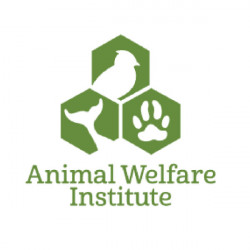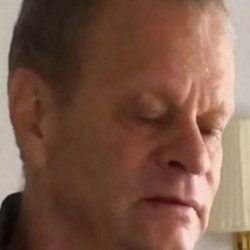Animal Welfare Institute
AWI’s mission is to alleviate suffering of nonhuman animals.
Christine Stevens has been called the Mother of the Animal Protection Movement. For over half a century, she dedicated her life to reducing animal suffering.
Animal Welfare Institute
3 years ago
Commercial Trade
The multi-billion dollar trade in wildlife and wildlife parts and products is a crisis that animal species are facing worldwide. Animals are captured, killed and traded live or in parts for a number of purposes such as for food and medicine; clothing and ornaments; entertainment, including for pets, zoos and aquariums; and for research. Often, the more exotic the species, the greater the price it fetches, leading to its overexploitation and depletion in the wild. Animals who are falling victim to consumer desire and lack of awareness range from the very small to the very large, including seahorses, butterflies, spiders, birds, reptiles, primates, big cats, rhinos, elephants, whales, dolphins and many more. Please read more at: https://awionline.org/content/commercial-trade Photo Nilina (Pexels 584181)

Animal Welfare Institute
3 years ago
Endangered Species
The Earth is now in the midst of its sixth major animal (and plant) extinction. The last mass extinction—approximately 65 million years ago—caused the disappearance of the dinosaurs. Although extinctions are naturally occurring, the current mass extinction is unique in that it is caused almost entirely by humans. According to the IUCN Red List of Threatened Species, the global authority on species' conservation status, one out of four of the world’s mammals and over 40 percent of amphibians are threatened with extinction due to human activity. Please read more at: https://awionline.org/content/endangered-species. Photo: George Desipris (Pexels 792831)

Animal Welfare Institute
3 years ago
Endangered Marine Species
Just like terrestrial animals, the creatures of the sea face myriad threats to their survival, both anthropogenic and natural, and many are in trouble. Our oceans appear vast and teeming with life, and until recently, were routinely viewed as containing infinite resources. In actuality, many marine species are decreasing at an alarming rate and are considered endangered. All manner of marine species are affected, including cetaceans (whales, dolphins and porpoises), seabirds, sea turtles, sharks and other fish, and marine invertebrates. The consequences of loss of species in the marine environment are significant, both ecologically and economically. Please read more at: https://awionline.org/content/endangered-marine-species Picture by Daniel Torobekov (Pexels 5901263)

Animal Welfare Institute
3 years ago
Commercial Whaling
Commercial whaling (distinguished from ASW by its participants, purpose, scale, and techniques) began in the 11th century with the Basque inhabitants of the French and Spanish coastlines of the Bay of Biscay. In the ensuing centuries, as they depleted local populations of whales, starting with right whales, Basque efforts expanded north, influencing other nations in northern Europe and eventually North America to begin their own whaling operations. Great Britain started hunting bowhead whales around the North American colonies in 1611 and American colonists began whaling (a practice known as Yankee whaling) out of Nantucket, Massachusetts, in 1712. Please read more at: https://awionline.org/content/commercial-whaling Photo: Elianne Dipp (Pexels 4666750)

Animal Welfare Institute
3 years ago

About Animal Welfare Institute
Christine Stevens has long been called the “Mother of the Animal Protection Movement” in America. For over half a century, she dedicated her life to reducing animal suffering both here and abroad. In the words of Dr. Jane Goodall: “Christine Stevens was a giant voice for animal welfare. Passionate, yet always reasoned, she took up one cause after another and she never gave up. Millions of animals are better off because of Christine’s quiet and very effective advocacy.”
Christine founded the Animal Welfare Institute to end the cruel treatment of animals in experimental laboratories. Inevitably, her work expanded to take on other animal welfare causes, including, preventing animal extinctions due to anthropogenic causes, reforming methods used to raise animals for food, banning steel-jaw leghold traps, ending commercial whaling, and much more. Christine supported wildlife management programs that were “win-win” situations—such as highway underpasses to facilitate wildlife movements, wildlife birth control, beaver bafflers to minimize or prevent beaver-caused flooding, and perching platforms that protect raptors from electrocution.
0.0
0 reviews

